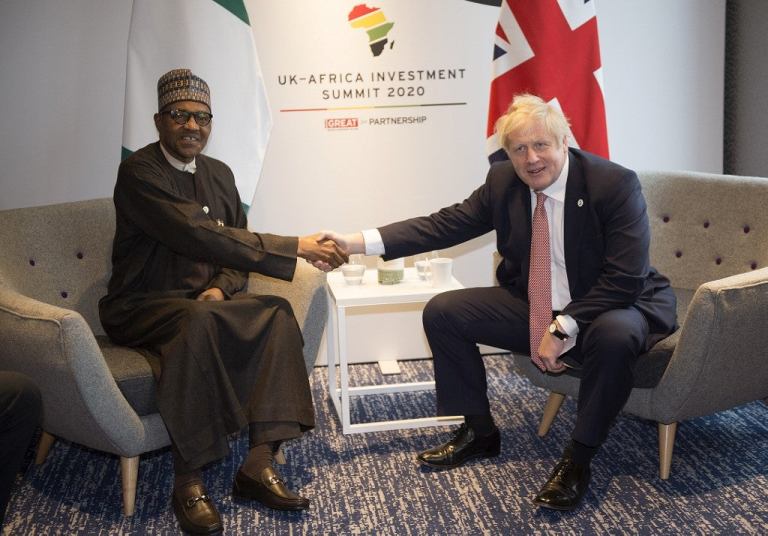Let’start with a basic point but allow me to use metaphors in making it. Here’s the point: Britain is Nigeria’s father, and Nigeria is Britain’s baby. If that sounds controversial, then consider this: Without Britain, there would have been no Nigeria.
When George Goldie came here in the 1800s, he didn’t meet any entity called “Nigeria”; rather, he met territories belonging to the Yoruba, the Igbo, the Fulani, the Kanuri, the Ijaw, etc. These were all self-governing people. But with massive force, Goldie occupied those territories and brought them under the control of his trading monopoly, the Royal Niger Company.
In 1900, Goldie transferred the territories to the British government, which divided them into the Southern and Northern protectorates and put Frederick Lugard in charge.
In 1914, Lugard merged the two protectorates into a colony, and his wife, Flora, called the political contraption “Nigeria”. Some say God used Britain to create Nigeria, just as He used our parents to bring us into this world. Well, then, Nigeria must remember the Biblical injunction: “Honour thy father and thy mother, so that thou may live long in the land” (Exodus 20:12). And, truth be told, Nigeria needs grace to live long in the land. But it must learn from the experiences of its father, Britain!
There are, indeed, similarities between Britain and Nigeria. Both are political inventions. The United Kingdom is made up of four nations: England, Scotland, Wales and Northern Ireland. Each predates the UK or Britain itself, just as the Yoruba, Igbo, Hausa/Fulani, etc, predate Nigeria.
Indeed, it wasn’t until 1707 when England and Scotland signed the Act of Union that Britain was born. But as Professor Paul Collier of Oxford University said, more than 300 years after Britain was forged together, the British identity is still weaker than the core identities of English, Scottish, Welsh and Northern Irish.
Indeed, according to one recent survey, about one-third of the 55 million people in England defined themselves as either “ English not British” or “more English than British”!
In the 2014 Scottish referendum, Scotland voted by 55 per cent to 45 per cent to stay in the UK. The fact that a whopping 45 per cent of Scots wanted to leave the UK shows the depth of Scottish nationalism.
Last Friday, January 31, the UK left the European Union after 47 years of membership. This has fuelled deeper nationalisms in the UK. In the EU referendum in 2016, Scotland voted by 62 per cent to remain in the EU, while England voted by 53 per cent to leave.
The Scottish National Party, SNP, which has governed Scotland for the past ten years, argues that Scotland has been taken out of the EU “against the wishes of the overwhelming majority of its people”. Nicola Sturgeon, Scotland’s First Minister, wants another Scottish referendum.
A recent Opinion Poll showed that if a referendum was held today, 51 per cent of Scottish voters would vote for independence. Another Opinion Poll showed that if there was a referendum in Northern Ireland, the people would vote by a small majority for reunification with the Republic of Ireland. This all sounds scary.
The author Louis de Bernieres recently wrote in the Financial Times that: “It seems ever more likely that Ireland can be reunified, and Scotland may go”, adding: “The end of Great Britain seems to be a distinct prospect”! Senior British statesmen have also been sounding alarm bells and proffering solutions. Recently, former Prime Minister Gordon Brown shockingly told the BBC that “I think the UK could end” unless it “fundamentally changes”.
Another stateman, Lord Owen, former Foreign Secretary, went even further, saying: “Many Scottish people are ready to vote for separation unless they are presented with a new constitutional federal structure for the UK that allows Scotland to feel the fullest autonomy of nationhood within a federal state”.
Now, here’s the question. If Britain, which created Nigeria and has existed for more than 300 years, is having such ethno-national tensions, what makes anyone think that Nigeria, with an even worse pedigree, can be immune from such tensions? President Buhari often says that Nigeria’s unity is not negotiable. But where does he get that confidence from? Well, his confidence is in military force.
In 2018, at the height of separatist agitations in Nigeria, he ordered the military to “fight and destroy relentlessly” the agitators, saying “We cannot and will not allow such advocacy”. He went on to say that if Nigeria broke up under him, “nobody will take another general to lead his country”. So, Buhari sees the solution to Nigeria’s ethno-national tensions through the prism of military suppression. But that’s not how the British are handling their own challenges. The British government is not threatening to send soldiers to Scotland. Rather, they are using persuasion, concessions and devolution of powers.
Since 1973, there have been more than 12 referendums in the UK, majority of them about devolution of powers, including the creation of Scottish, Welsh and Northern Ireland governments in the late 1990s. But since then, pressure has grown for more radical solutions.
The Times called for a “full constitutional convention to agree new relationship between the nations of the UK”. Theresa May, then prime minister, set up a review to look at “ways of strengthening the Union”. Boris Johnson, current prime minister, is pursuing radical constitutional reforms to further empower the regions and nations. In his Financial Times article, Louis de Bernieres wrote that “in any arranged marriage a couple sometimes makes the most of bad job by working hard at pretending to be in love”.
Britain and Nigeria are each in a separate arranged marriage, but while Britain is working hard to make its own work, Nigeria is doing absolutely nothing to strengthen its loveless marriage. Yet, as Amos 3:3 says “Can two walk together, except they be agreed?” Nigeria must learn from how Britain, its father, is handling its marriage crisis: It must restructure and devolve powers!
Source: Vanguard



